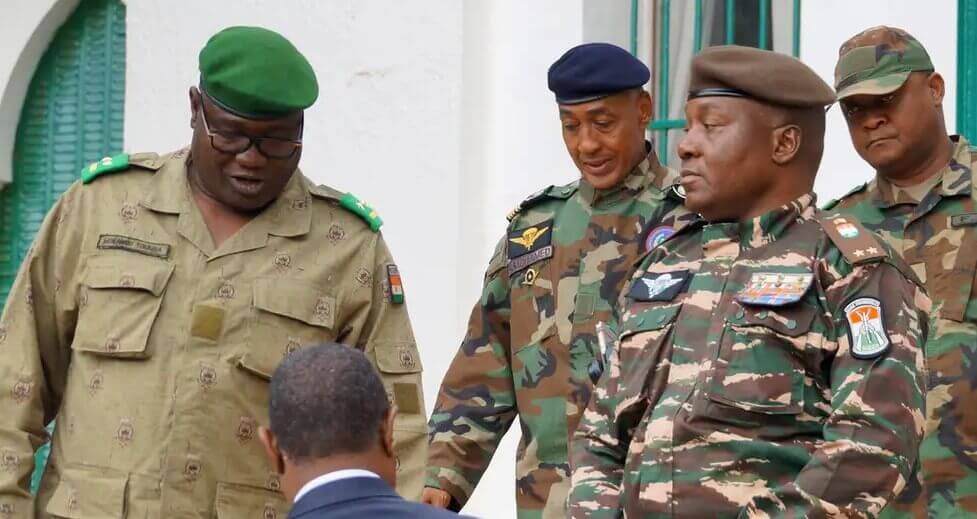Niger has been gripped by political turmoil since the recent military coup that detained President Mohamed Bazoum. In the aftermath of the coup, the military junta has made startling allegations, accusing France, Niger’s former colonial power, of planning military intervention in the country. This article delves into the developments surrounding the coup, the junta’s claims against France, and the international responses, shedding light on the complexities of the situation.
Table of Contents
The Arrests and the Allegations:
As the political landscape in Niger continues to be fraught with uncertainty, the military junta has taken action by arresting four government ministers, including the ministers for oil and mining, and the head of the ruling party’s executive committee. Additionally, the junta has accused France of plotting to intervene militarily to reinstate President Bazoum, who remains in detention since the coup took place. The situation escalated when supporters of the coup stormed the French embassy in Niamey. Despite the accusations, the French government has maintained its recognition of President Bazoum as Niger’s legitimate leader.
ECOWAS’s Call for Restoration:
The Economic Community of West African States (ECOWAS) has been actively engaged in addressing the crisis in Niger. Following an emergency meeting in Abuja, Nigeria’s capital, ECOWAS called for the immediate release and reinstatement of President Bazoum. The 15-nation bloc issued a warning to the military junta, led by General Abdourahmane Tchiani, stating that if their demands are not met within one week, they will take all necessary measures to restore constitutional order in Niger, even considering the use of force if required.
Germany’s Response and Implications:
The coup in Niger has prompted Germany to take significant actions in response. The country has suspended its bilateral cooperation with Niger until further notice, signaling its disapproval of the military intervention and detention of President Bazoum. Berlin is closely monitoring the situation and has not ruled out the possibility of further measures depending on how events unfold. The suspension of cooperation could have wide-ranging implications for Niger’s economy and foreign relations.
EU’s Decision to Cut Aid:
The European Union (EU) has also weighed in on the situation by cutting its aid to Niger. The move further adds to the pressure on the military junta to restore the democratically elected government and uphold constitutional order. The EU’s decision reflects the gravity of the situation and the international community’s stance on the importance of democratic governance.
Unpredictable Path Ahead:
As events continue to unfold, the situation in Niger remains fluid and unpredictable. The detention of President Bazoum and the allegations against France have thrust the country into the global spotlight. The international community is closely monitoring developments and hoping for a peaceful resolution to the crisis.
Conclusion:
The political crisis in Niger has exposed deep-rooted tensions and complexities within the country’s political landscape. The military junta’s accusations against France and the international community’s responses have added further layers of intricacy to the situation. As Niger grapples with the aftermath of the coup, the path to stability and restoration of democratic governance remains uncertain. The coming days and weeks will be critical in determining the country’s future and its relations with the global community.
